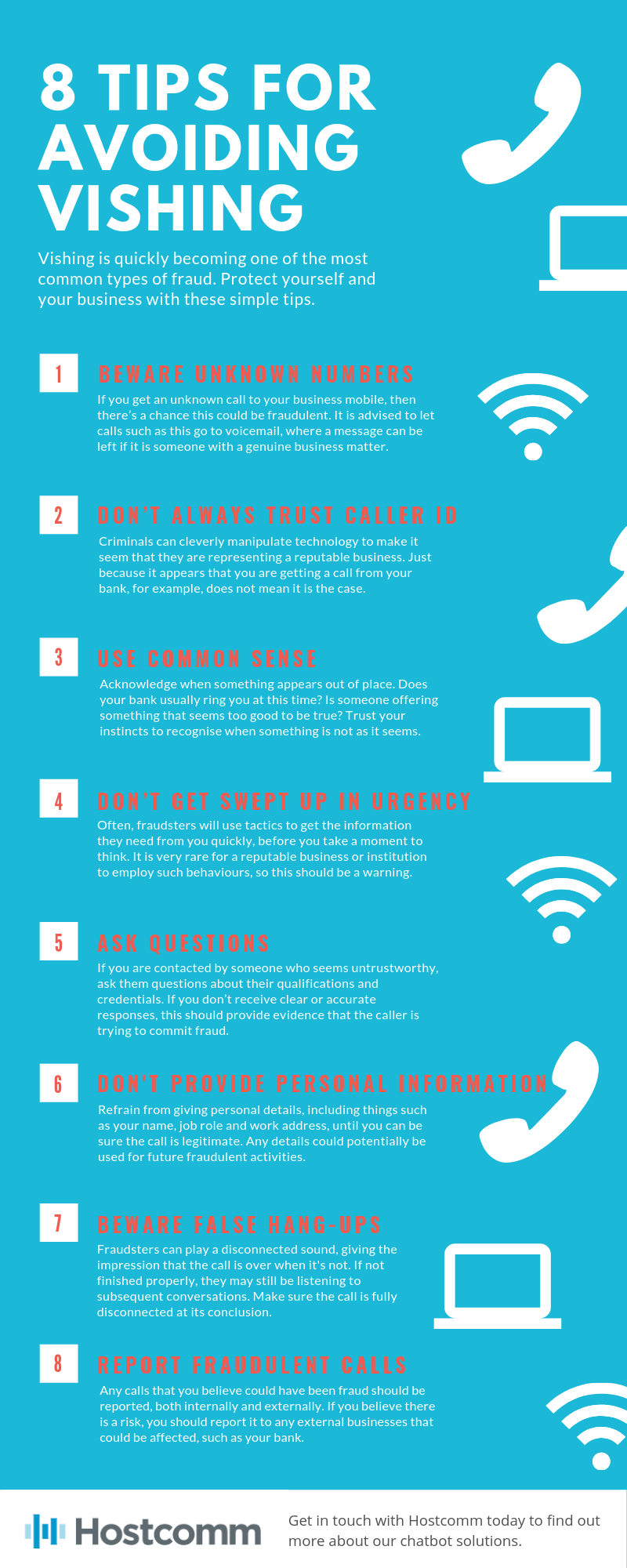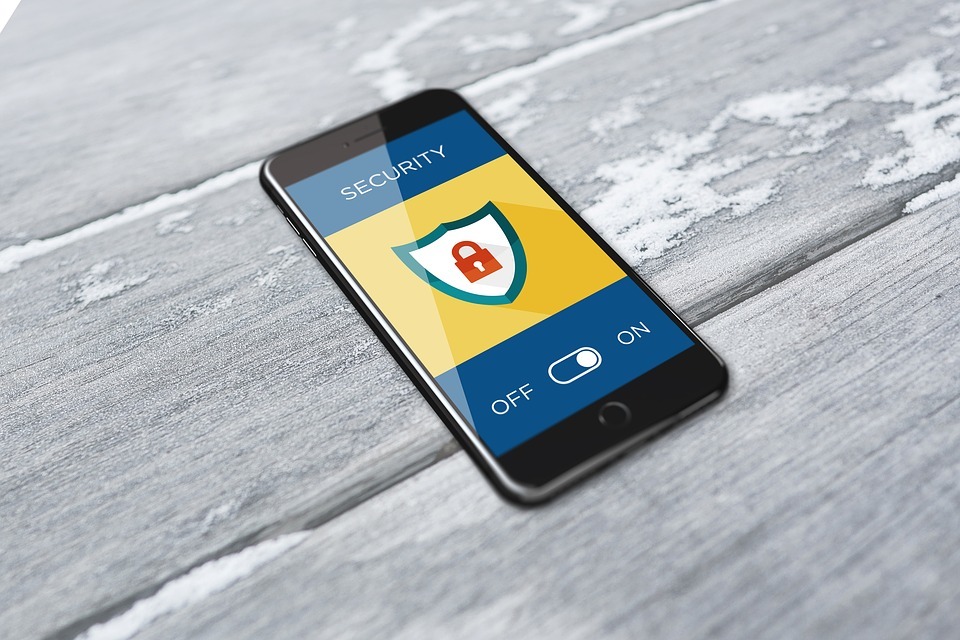Modern technology has made it easier than ever for people and businesses to interact. Whether it’s over the phone, through social media or by email, our modern chatbot systems can assist customers quickly and effectively.
Unfortunately, with any advancements in technology, there are those who seek to exploit it. New methods of fraud continue to appear, and it’s crucial that your business is aware of how these are performed to protect itself long into the future.
What is Vishing?

Vishing is the fraudulent access of a user’s data through the use of voice over internet protocol (VoIP) systems. VoIP is simply the use of broadband for activities such as calls and data messaging.
Vishing is similar to its more well-known namesake phishing, which uses emails to obtain a user’s data. Vishing can be conducted in several ways and often targets mobile users, either by downloading malicious software or by getting details through a fraudulent conversation.
A typical example of vishing is when somebody gets in contact while pretending to represent the individual or business’ bank. They will ask the user to contact them to fix the issue, supplying a number that appears to be official. When they ring up, they are asked to provide specific details which give the criminals access to bank accounts and, potentially, other parts of the home or business.
Vishing is often done to achieve access to banks and finances. However, vishing is also used frequently in corporate espionage, as criminals can target lower-level employees to uncover business secrets.
Vishing’s Impact on Business

With the development of modern technologies and increasing use of VoIP platforms such as Facebook Messenger, vishing’s prominence has risen over the years. In a recent Fraud Report, worldwide cybersecurity company RSA highlighted the rise of this new form of cybercrime. While it only accounted for one percent of all fraud in Q3 2018, it was called a “significant threat” due to how integrated and trusted VoIP platforms are in our daily lives. 73% of total online fraud in Q3 2018 was through mobile browsers and apps, locations highly susceptible to vishing attacks.
How to Avoid Vishing

Beware Unknown Numbers
If you get an unknown call to your business mobile, then there’s a chance this could be fraudulent. It is advised to let calls such as this go to voicemail, where a message can be left if it is someone with a genuine business matter. Even by answering and then hanging up, the fraudsters will learn that the mobile is active, which could lead to more threats down the line.
Don’t Always Trust Caller ID
One of the biggest threats with vishing is how criminals can cleverly manipulate technology to make it seem that they are representing a reputable business. Just because it appears that you are getting a call from your bank does not mean it is the case.
Use Common Sense
If your instincts tell you that something is wrong, you should listen. Acknowledge when something appears out of place – does your bank usually ring you at this time? Is someone offering something that seems too good to be true? Trust your instincts to recognise when something is not as it seems.
Don’t Get Swept Up in Urgency
Often, fraudsters will use tactics to get the information they need from you quickly, before you take a moment to think. It is very rare for a reputable business or institution to do this, so any urgency should be a big warning flag.
Ask Questions
Fraudsters are becoming increasingly talented at imitating businesses. However, major firms are also developing tools to help overcome this. If you are contacted by someone who seems untrustworthy, ask them questions about their work, qualifications and credentials. If you don’t receive clear or accurate responses, this should provide evidence that the caller is trying to commit fraud.
Do Not Provide Personal Information
It is always advised that you don’t provide personal or sensitive information over the phone. This fact is increasingly vital in situations where you doubt the legitimacy of the caller. Refrain from giving any details, including things such as your name, job role and work address, until you can be sure the call is legitimate.
Beware of False Hang-Ups
A new technique vishing scammers are using is known as a ‘fake disconnect’. This technique involves the caller claiming to end the conversation before playing a disconnected sound, giving the impression that the call is over. Instead, if not finished properly, they may still be listening to subsequent conversations. Make sure the call is fully disconnected at its conclusion.
Report Fraudulent Calls
Any call that you believe could have been fraud should be reported, both internally and externally. Let your managers or bosses know if you think you’ve been contacted by fraud, supplying as much information as you can. This knowledge can help them protect from further fraud in the future. Also, if you believe there is a risk, you should report it to any external businesses that could be affected, such as your bank.
A Secure Chatbot for Your Business

Here at Hostcomm, we supply state-of-the-art chatbots built with the highest levels of privacy and security. All our chatbots come with PCI-DSS compliance and can be programmed to give your customers the utmost confidence while speaking to you. If you are interested in our secure chatbot systems, why not get in contact with us today?














